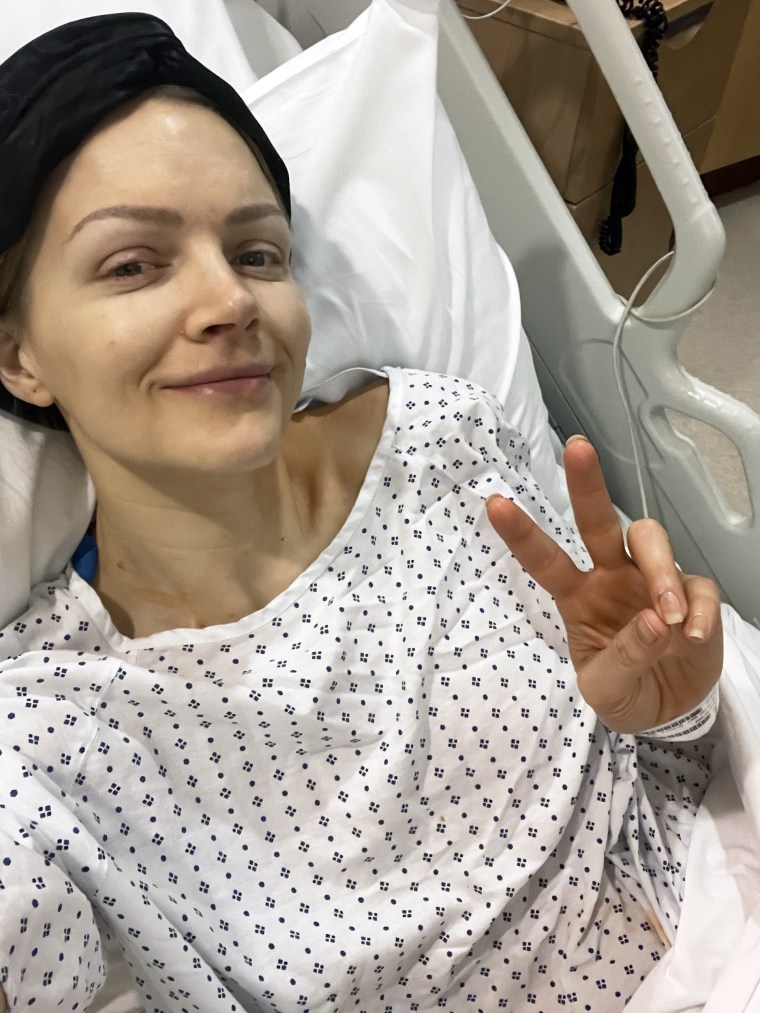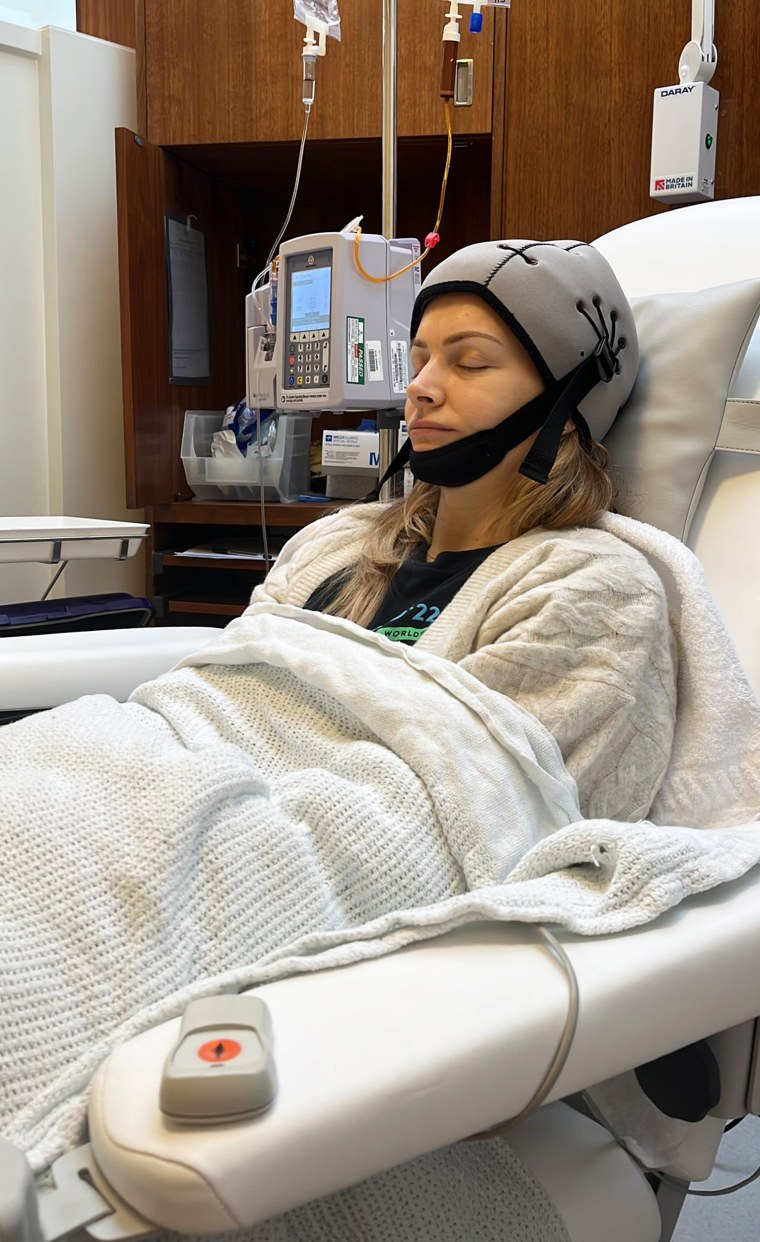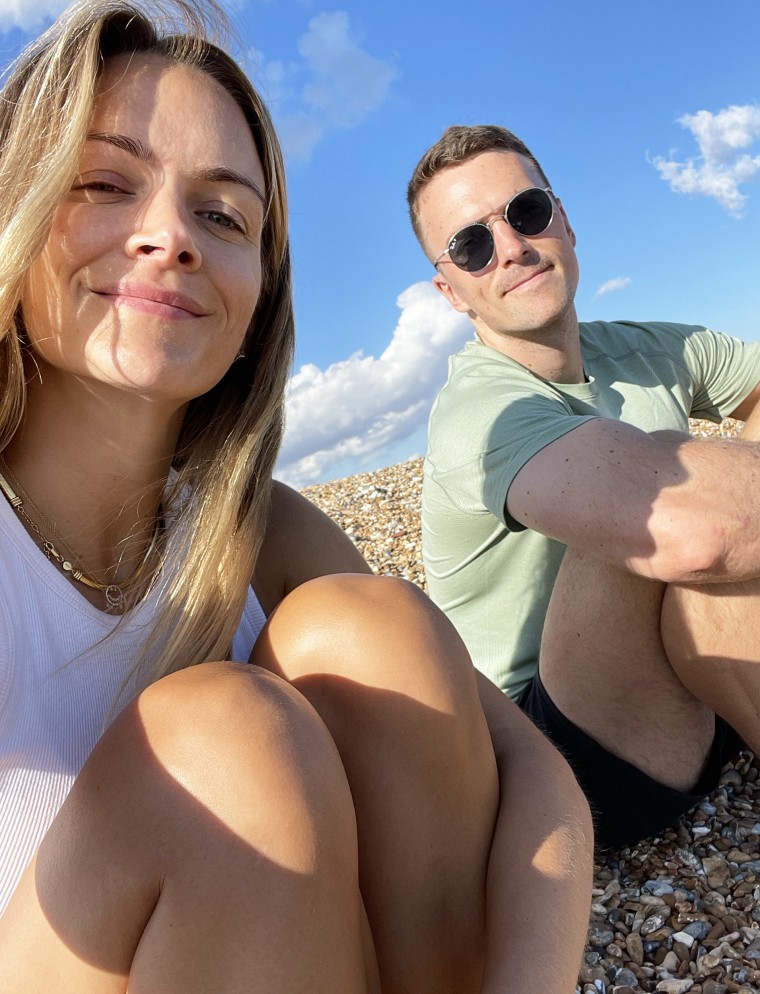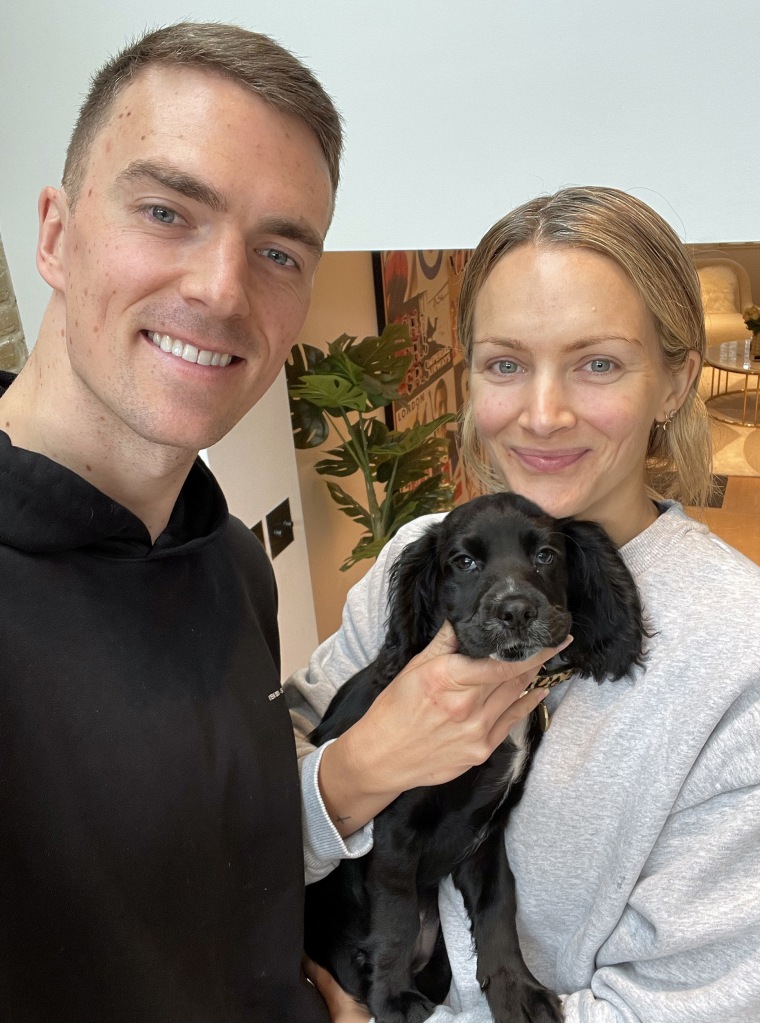Leanne Hainsby, 35, is a Peloton cycle instructor based in London. In January 2023, she revealed she had been in treatment for six months for breast cancer. In the following essay for TODAY, she shares how her doctor originally downplayed her symptoms, and how she persisted until she received the correct diagnosis. She also shares tips for people who want to support someone going through cancer treatment.
When I tossed the covers off the bed on a boiling hot July day, my arm grazed my breast and I felt it: a lump on the side of my breast. I had a gut feeling this was breast cancer. I'd tragically just lost my best friend, very suddenly, and I was hyper-aware of my health and body. I scheduled an appointment with my general practitioner immediately to ease my fears. My doctor thought the lump was a hormonal cyst fueled by fluctuating hormones due to the trauma and stress of losing my best friend, and requested I return in 28 days to see if the mass changed during my menstrual cycle. But after the examination, I still felt as if something was off. During that waiting period, I kept feeling the lump. It wasn’t growing, but it wasn’t shrinking either. In my gut, I felt it was cancer, but I still hoped that I was wrong.

I set up an appointment with a consultant at a breast cancer clinic, who also thought the lump wasn’t anything worrisome, but thankfully she at least ordered an ultrasound. As the technician conducted the scan, he said, “I can't confirm this isn't a cyst. This looks iffy.”
In my heart, I knew it was breast cancer.
After a mammogram, biopsy, PET scan, CT scan and MRI, the results confirmed my fear: I had breast cancer. While it was triple positive and considered aggressive, doctors found it early, making it treatable.
I was still in the initial shock phase of losing my best friend and then I had to deal with a cancer diagnosis at the same time. I felt frantic. I barely slept. I kept up a routine, taking walks and still teaching Peloton classes. One weekend, I taught a class, and I remember thinking that it was the only 30 minutes of the past five days that I felt like me. I felt great. That’s when I realized that I wanted to keep teaching throughout my treatment. When everything else felt stressful and frantic, teaching made me feel like me.

I initially felt completely overwhelmed by the length of my treatment plan. It started in September 2022 with in vitro fertilization to preserve my fertility, I then began my weekly chemotherapy, for 12 weeks that ended in December. I spent a month recovering before undergoing a lumpectomy and lymph node dissection surgery on Jan. 11, 2023. After another three weeks of recovery, I then had two weeks of radiation. Six months total of treatment. I now take Tamoxifen, (a hormone therapy drug), Herceptin and Zolidex as part of my maintenance treatment.
Even though I continued teaching through much of my treatment, I didn’t always feel great. Chemotherapy side effects are cumulative and that takes its toll, making me feel tired. I lost half of my hair across a 4-month period, including my eyebrows and eyelashes. There were days I struggled to do more than make it to my couch, let alone teach a class. I know my body well, and so I did my best to listen to what it needed each day: pulling back on classes if it felt too much, and enjoying them when I could.

At times, having cancer felt isolating. My fiancé had skin cancer when he was 25 so he understood what I experienced. I always considered myself independent and it felt tough asking for help. I knew it was hard for my partner and family to see me unwell. I’m really proud how my fiancé and I showed up for each other during my treatment. It really isn't easy. We appreciate things in a completely different way than before my diagnosis. I have a very different perspective of life.
I never felt certain about sharing my diagnosis and treatment. I thought it would do it when I had to, like if I lost all my hair. But then, around Christmas, a woman approached me in the studio and told me how I had helped her through her journey with breast cancer. I admired her bravery and strength in her candor, but I didn’t share my story with her. After that, it felt like I was doing a disservice to men and women with cancer, and I realized I wanted to be open. I also had received positive test results by that point, so I felt more confident that I was going to be OK. There’s something so powerful in knowing you are not alone, and after sharing my story, I realized there were so many people like me. Their stories inspired me as I tried to empower them.
I hope that my experience encourages other people who feel dismissed by their doctors to advocate for themselves. I was told my breast cancer was just a hormonal cyst. I want anybody who feels that they, too, were sent away to get a second opinion.

Sometimes people don’t know how to support a loved one with cancer and that’s OK. The person with cancer doesn’t always know how to support themselves. But I found some things that really helped me. My treatment plan felt long, and I needed support throughout, not just at the beginning, which is why I found that consistency in support works well. Also having a few loved ones who know about your type of cancer helps. My mom and fiancé could speak with doctors about my treatment when I felt too anxious or overwhelmed to do so. I liked when someone offered support without trying to find a way to compare themselves to me. You don’t have to relate to it to be a strong supporter. Finally, patience makes a big difference. My emotions often ran high and there are a lot of stressful moments along the way. Being patient and kind with everyone helps diffuse the tough emotions.
My advice to anyone going through something like this? Check yourself again and again — and trust your intuition.
This interview has been edited and condensed.